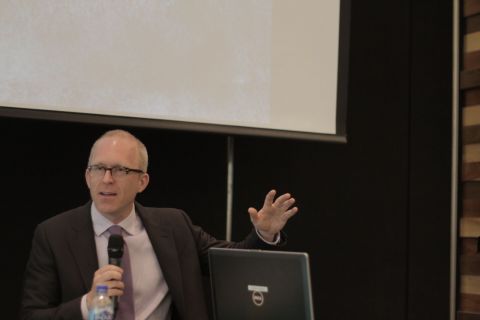
Professor Darryl Robinson recently spent a week at the Australian National University in Canberra, giving three presentations. His visit was hosted by the Centre for International Governance and Justice as part of the “Festival of International Law,” which examined new research directions in international criminal scholarship.
On Oct. 14, Robinson delivered a masterclass on the topic “What is the Underlying Theory of Crimes Against Humanity?” to graduate students from various disciplines. Outlining how different doctrinal positions in current controversies actually reflect different implicit conceptions of what a crime against humanity is, he highlighted that multiple conceptions are legally plausible and have different moral and political implications.
The masterclass was supported by an Australian Research Council Laureate Fellowship.
Two days later, Robinson gave a keynote address on “A Better Conversation about International Criminal Law” at an inter-disciplinary conference on “Rhetoric in International Criminal Law.” He canvassed recurring arguments in the field, and suggested that some of the current stalemates in the discourse could be transcended by more textured debate. “A better conversation that might generate better insights,” he urged.
Additionally, he led a workshop for academics, together with Professor Gerry Simpson of the University of Melbourne, on teaching and writing on international criminal justice.
Robinson’s visit to Australia has been very helpful for his own research. “I was grateful for the chance to interact with established and new scholars doing cutting-edge work,” he says. “The discussions with scholars who employ many different scholarly perspectives have enriched my appreciation of this dynamic field.”